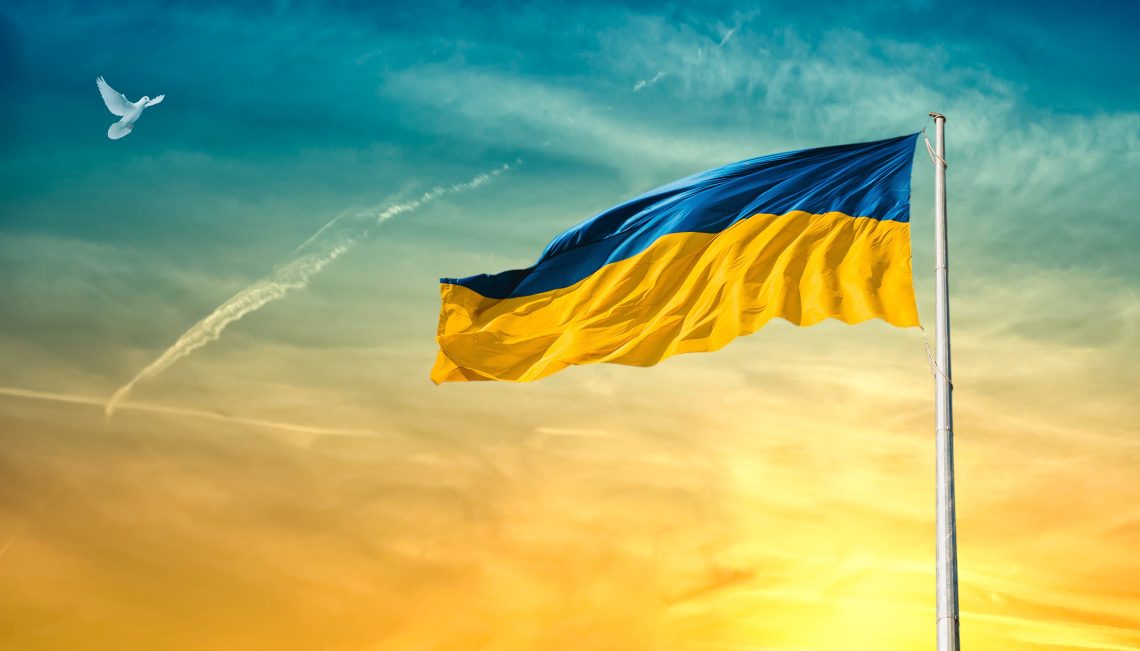
On Putin’s war, rationality, and the power of worldviews
Vladimir Putin’s invasion of Ukraine came as a shock to most of the world. It is so blatantly unreasonable and reprehensible that some commentators have questioned Putin’s mental health and capacity for rational action. The debates about Putin’s rationality are, however, muddled by a lack of clarity about what we mean by ‘rationality’.
Two types of irrationality
There are two senses in which Putin clearly is irrational.
First, the beliefs that motivated his invasion were not produced by a rational consideration of evidence and arguments, nor can they be rationally justified. He appears to have developed an increasingly warped and extreme view of things, including myths, propaganda, and “alternative facts” about history and Russian military capacities, cheered on by sycophants in a totalitarian echo chamber. Rationality in this sense is, to some extent, a matter of degree—everyone is motivated by emotion, intuition, or ideology at one time or another—but Putin appears to be at the high end of the irrationality spectrum.
Second, it is highly unlikely that Putin’s aggression in Ukraine will in fact enable him to reach his goals (i.e., the integration of Ukraine in an imagined Russian empire). The Ukrainians have fought back valiantly. Military experts have pointed out that even if Putin would eventually be able to win the war (and it is far from obvious that he will), he will not win the peace—that is to say, Ukrainians will not accept their country being incorporated into Russia, and Putin hardly has the resources to occupy Ukraine in the long term. Furthermore, Russia under Putin is becoming an international pariah state, severed from most of the rest of the world, and this is hardly a recipe for power in today’s globalized world.
Two types of potential rationality
There are, however, other senses of the term ‘rationality’, in which it is less obvious that Putin is irrational: To what extent are Putin’s actions logically consistent with his own subjective beliefs and goals? Is he, in this sense, a rational actor? First off, human beings are generally rational actors, unless they are heavily cognitively impaired or not yet fully developed, at least in the basic sense that they have a capacity for reflection, self-awareness, and making plans. The opposite of rationality in this sense is non-rationality rather than irrationality. A non-rational entity such as an inanimate object lacks the capacity for irrationality, which rational agents possess.
If we assume that Putin has a basic capacity for rationality (and thus irrationality), are his actions in Ukraine irrational in the sense that they are inconsistent with his subjective beliefs and goals? I do not know. Historians, biographers, and other scholars will work on this chapter of history for many years to come. What I do know is that people often underestimate the psychological power of worldviews, which often produce fanaticism, violence, and actions that look completely bizarre from the outside. People will do anything for those nuclear concerns that can become intimately tied to the sense of meaning in life, self-worth, and legacy.
There is an interesting parallel to the case of the Norwegian mass murderer Anders Behring Breivik, which I discussed in my doctoral dissertation. As with Putin, the immediate reaction in many quarters was “that Breivik’s atrocities were just completely incomprehensible and absurd, because no normal, sane human being – no one like us – would ever commit such an act.” (p. 22, Nilsson, 2013). While the initial psychiatric evaluation concluded that Breivik suffered from a psychotic disorder, a second evaluation concluded that Breivik suffered from a narcissistic personality disorder rather than a psychotic one. This is encapsulated in the conclusion of an examination of the psychiatric reports and Breivik’s 1500-page manifesto by a group of forensic psychiatrists (Leonard et al., 2014, p. 422):
“Even for a forensic psychiatrist, it can be difficult to reconcile the possibility that a person could carry out such a massacre without some form of mental incapacity. However, when one begins to look below the surface and dig a little more deeply into Breivik’s compendium, as well as his statements since the attack, a different picture begins to emerge, of a man who possessed the capacity for complex thought and a well-developed understanding of human nature and emotions. A man whose words and actions – including how carefully he chose the people whose writings he would plagiarize and his anticipation of the reactions of his readers – demonstrate a mind significantly more rational and reality-based than one might presume at first glance.”
Breivik and Putin both appear to possess the explosive combination of narcissism, utopianism, ideological fanaticism (e.g., writing lengthy manifestos), determination, manipulativeness, and ruthlessness, as have many autocrats, terrorists, and warmongers throughout history. Above all, it is their worldviews that seem to have propelled them to commit such extreme violent acts. We have no choice but to try to construe them as rational actors, however repugnant it may be, in the sense that they act on their own beliefs and goals, if we want to predict and prevent their actions. To anticipate Putin’s next move, we need to understand his thinking. To make him cease the aggression in Ukraine, it might be beneficial to anticipate different scenarios in which Putin can make up a personal narrative that construes his war as a success, even though he in fact fails to conquer Ukraine. To be better prepared for other dangerous situations in the future, we might need to pay more attention to the worldviews of autocrats and take their declarations of intent seriously, even when what they say sounds completely foreign, bizarre, and unrealistic to us.




